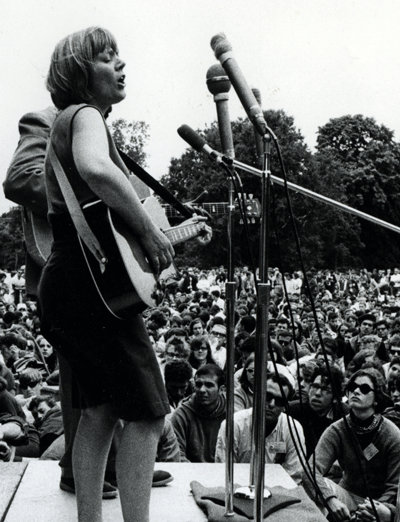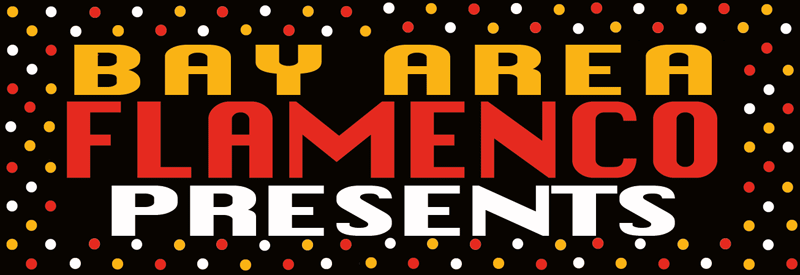THE BOSTON GLOBE

OAKLAND, Calif. — Barbara Dane has lived a life full of glowing superlatives. The noted jazz critic Leonard Feather famously branded her “Bessie Smith in stereo.” Ebony magazine, in its first-ever feature on a white woman, way back in 1959, called Dane “startlingly blonde,” a “pale-faced young lady’’ who could help keep the blues tradition alive.
But her most enduring title is one she doesn’t deserve. At 85, Barbara Dane is one of the true unsung heroes of American music, a singer and activist who is often relegated to footnotes in the history books.
Blessed with a rich, resonant voice, she had little use for categories when she started singing professionally in the 1950s, a distinction that would prove a marketing nightmare. She had a jazz musician’s sense of rhythm, a blues singer’s deep investment in the material, and a folk stylist’s attention to authenticity. And she sang all of that music with equal ease.
“I never gave it a thought or considered any walls between any of my work,” Dane says a few weeks ago in a candid, four-hour interview at her home here. “For me it meant nothing to change from one thing to another depending on who showed up and what the musicians knew how to play.”
The night before, Dane had celebrated her birthday with a rare performance at the Freight & Salvage Coffeehouse in nearby Berkeley. At three hours, the concert simply skimmed the surface of Dane’s vast reach as a chameleonic singer.
Even the show’s opening video montage struggled to keep pace with Dane’s detours into various genres, crudely cutting from a folk ballad to joyous gospel to swinging jazz. Photos captured Dane through the years, blossoming from a young woman with pin-up good looks to a sleek jazz chanteuse holding her own with the likes of Muddy Waters through the political battles she waged in the 1970s singing wherever she was needed.
You cannot separate Dane from her liberal politics, which was apparent even before she sang a note at the Freight & Salvage. As a stagehand adjusted her microphone, she explained she was “centering” Dane. “Centering me? Moi?” Dane said in mock horror. The crowd, of mostly older fans, laughed knowingly.
Carolyn Mugar, the executive director of Farm Aid, the nonprofit organization headquartered in Cambridge, was at the show. Mugar has been a close friend since meeting Dane in the late ’60s through the antiwar movement. She has admired how Dane has sustained a long history of integrity both personal and artistic.
“For me, her legacy is as someone who put her art in the practice of social change,” Mugar says. “Certainly people have gone on to do that. I think Barbara holds a very important place and people should know more of what she has done so that they, too, can contribute to social change.”
If Dane never became a marquee artist, her influence at least has rippled well beyond her cult status. The door to her home office is lined with photos of Dane with her arms draped around her admirers, from Bonnie Raitt to Mavis Staples to Jackson Browne. (Raitt has said Dane was a model for her own career balancing art and activism).
Pete Seeger was an early champion, as was Louis Armstrong. In “My Life So Far,” her 2005 autobiography, longtime friend Jane Fonda called Dane “a warm, wise, and talented blues singer.”
Perched in the Oakland Hills, Dane’s modest house hints at a life of adventure. It spills over with artwork, CDs, recording equipment, vintage photos of Dane in her halcyon years. Harry Belafonte’s new memoir rests on a coffee table. On a bottom bookshelf lies Bob Dylan’s “Chronicles, Volume One,” in which Dylan makes passing reference to Dane.
On another shelf is a small black-and-white photo in a bare wooden frame. It’s Dane with Fidel Castro in the ’60s; she was the first US entertainer to perform in Cuba after Castro’s revolution, an association that, not surprisingly, would invite criticism.
The common line on Dane’s career is that she was her own worst enemy. She jumped from one label to the next, just like she did with genres. There were brushes with fame, but she resisted them. She was tapped to perform with Louis Armstrong on an overseas tour, but she claims the State Department yanked her from the lineup because of her politics.
She treats those events not as regrets, but milestones. She knew early on that she would speak her mind. She didn’t play nice. She didn’t curry favor with promoters or chase people who could — and wanted to — make her a star. When Albert Grossman, who shaped the careers of Dylan and Peter, Paul and Mary, came calling, she decided he wasn’t a good fit for her.
Dane performed at the inaugural Newport Folk Festival in 1959, but she’s convinced her outspokenness got her banned from future appearances. When she openly questioned George Wein’s payment practices for musicians, according to Dane, the legendary impresario made sure she wasn’t booked at the various other festivals he produced, including the jazz ones in Newport and abroad.
“It was a call I made, so I’m not going to moan and groan,” she says. “I thought it had to be said.”
As such, she never made much of a dent in New England’s folk or jazz scenes. Dane doesn’t recall ever performing at Club 47, the fabled folk mecca in Cambridge that produced Joan Baez and Tom Rush in the early ’60s.
Dane eludes comparisons because she was virtually peerless in terms of her pursuits. She opened a blues club in the Bay Area called Sugar Hill. She and her third husband, Irwin Silber, the late founder and moral conscience of the folk-music periodical “Sing Out!,” started their own label in 1969. Paredon Records chronicled movements of social unrest across the world, such as Chilean musicians resisting dictator Augusto Pinochet. The Paredon collection remains in print ever since Dane and Silber donated it to Smithsonian Folkways.
Dane’s own albums, however, are harder to find. She at least sells most of them on CD through her website (www.barbaradane.net). She doesn’t own the rights, so she pirated them. The orders aren’t that many, she says, but they come in from as far away as Australia and Germany.
Dane was a trailblazer who not only erased the line between race relations — she simply never saw it in the first place. She performed with African-American blues musicians such as the Chambers Brothers and Lightnin’ Hopkins.
She tells the story that changed her course at a young age. She must have been 7 or 8 when she worked in her father’s drugstore in Detroit. One day an African-American worker entered the store and Dane served him a Coca-Cola. Right as she was pouring it, her father emerged from the back, outraged that the man was in his establishment. He scolded his daughter that they could not serve him, that the other patrons would be appalled.
“I knew right then that I took the other guy’s side,” she says. “Not only that, but I took some of the essence of that guy and his problem inside of me. A question of justice became a very serious matter for me as a child.”
It wasn’t long before, in her early teens, she was picketing a local restaurant that wouldn’t serve blacks and soon began singing at labor rallies. That, she says, is where she found her fearless voice, both literally and figuratively.
Bernice Johnson Reagon, the singer, composer, cultural scholar, and founder of the a cappella group Sweet Honey in the Rock, witnessed Dane’s powerful performances first hand. (Dane also produced Reagon’s 1975 album, “Give Your Hands to Struggle,” for Dane’s Paredon label.) A particular show, decades ago in Washington, D.C., still resonates with Reagon.
“Barbara sang unaccompanied for two hours. There was no break, she did not fully narrate, and it was flawless,” Reagon says. “I was stunned. I asked her about it afterward, and she did not seem to be conscious of it. As I think about it, I don’t think I’ve ever heard anything else like it.”
Dane’s commercial prospects stalled early on — what else do you expect from a woman who has an album called “I Hate the Capitalist System”? — but she had her own definition of success. She feels like she achieved it, too, a life spent helping the disenfranchised with the most basic of weapons: compassion, conviction, and her voice.
“I think you can go down every block in every city and find someone with a good voice,” says Dane, who is finally working on her memoirs. “But it’s a question of knowing what to do about it, knowing what you want to sing for. I learned early on what I wanted to do with my voice — and I’ve done it.”

